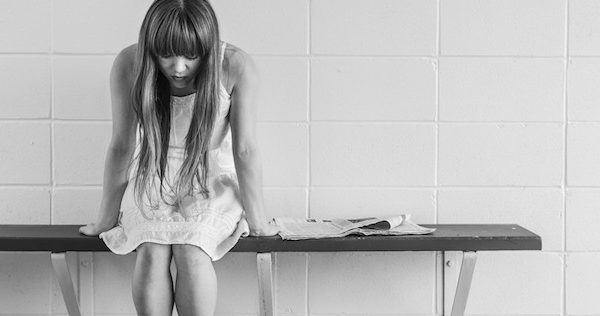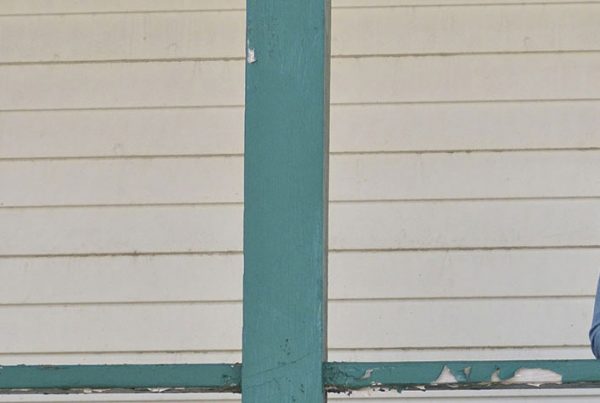About a month ago I noticed something scary taking root in my heart. It all began after I mistakenly came to believe that Isaac only gets hurt with my husband.
Has anyone else ever felt that way about their husband? Men tend to play rougher with their kids, and that’s a good thing–it teaches our kids to take risks, and to trust. In fact, it can be healthy when a mom and dad have different parenting styles that complement one another.
But it’s also hard. Because Ike is a little more rough and tumble with our son, I am quick to blame him when Isaac bumps his head or slips and falls. In my heart I secretly think, “If you were just a little gentler with him…”
Once I was even so bold as to declare, “He only gets hurt when he’s with YOU!”
Now, there are two things that scare me about this line of thinking. The first is that it’s simply untrue. It’s a lie. I am not a better or more attentive parent than Ike. Furthermore, Ike has pointed out that I conveniently forget the times when Isaac gets hurt with me.
That’s when I realized that my accusations only reveal a lack of trust, not reality.
The second thing that scares me is what my mindset could mean for our marriage down the road. What if, God forbid, Isaac was seriously injured while playing with Ike? How would I respond? Would I be able to forgive him, knowing that accidents happen with even the best parents?
Or would I blame him? Would I become bitter and hard-hearted toward him? Would I withhold forgiveness and allow a wedge to form between us?
That inclination to blame could come between us at a time when we desperately need one another, and that’s what scares me a lot.
I don’t know if this is something you struggle with in your own marriage, but most of us are quick to blame at some time or another. That’s part of the reason our culture is so litigious. Whenever something bad happens–anything–we desperately need someone to blame. Somebody has to be at fault. The idea that we live in a broken world where bad things happen isn’t sufficient–someone has to pay.
That’s why it’s important for us as Christians to remember that someone did pay. Christ died on the cross to assume our blame. And now, for those of us in Christ, we bear the title of “blameless“:
“He will also keep you firm to the end, so that you will be blameless on the day of our Lord Jesus Christ.” – 1 Corinthians 7:8
“For he chose us in him before the creation of the world to be holy and blameless in his sight.” – Ephesians 1:4
“May he strengthen your hearts so that you will be blameless and holy in the presence of our God and Father when our Lord Jesus comes with all his holy ones.” – 1 Thessalonians 3:13
When Christ died he took on the blame of my husband. When Christ died, he took on mine too. Jesus took on the blame of the world, so I don’t need to re-crucify every person who hurts or offends me. I no longer have to be ruled by the compulsion to blame.
Because it is finished. It is done.
That doesn’t mean we shouldn’t attend to justice here on earth. And it doesn’t mean that people bear no responsibility for their mistakes.
Instead, the freedom from blaming is less about my actions and more about my heart. When Christ took on the blame of the world, he made it possible for me to forgive. He also made it possible for me to realize my own sin without being defeated by it. The blame has already been taken, so I am free–free to forgive, free to be in relationship, free to live.
In a society that is so quick to sue and to blame, the cross is a radically counter-cultural way. Rather than be quick to blame, we can be quick to show grace and forgive. What an amazing witness that could be in our blame-ridden world! And what a freeing alternative.






“I don’t need to re-crucify every person who hurts or offends me.” @SHoddeMiller on #forgiveness and #trust – http://t.co/klFVVgScEp
This is a fresh breath of Gospel and Grace, Sharon. So well done.
Your line “When Christ took on the blame of the world, he made it possible for me to forgive” reminds me of something Aimee Byrd said in her new book Housewife Theologian: “When I forgive someone who has deeply hurt me, it isn’t based on my own righteousness or strength. Only in my weakness, my utter dependence on Christ, am I able to truly forgive based on his righteousness and his strength.”
Our trust in Christ makes us able to deal with the shortcomings of others, including our family when they don’t do things the way we’d do them. I know you and Ike love Isaac and want what’s best for him. That little guy is blessed to have a pair of parents like you two.
Tim
This is so true, and so encouraging. The blame game is pernicious. Thanks for excellent food for thought.